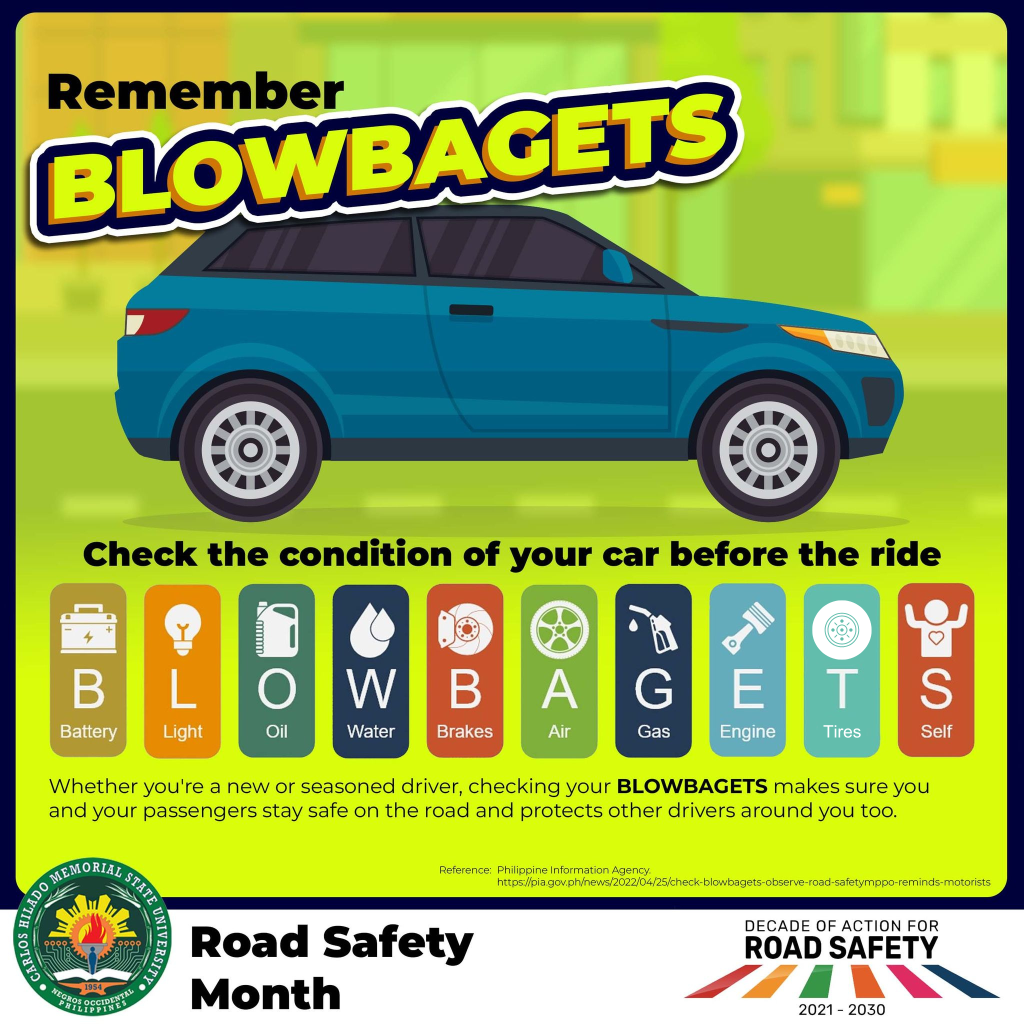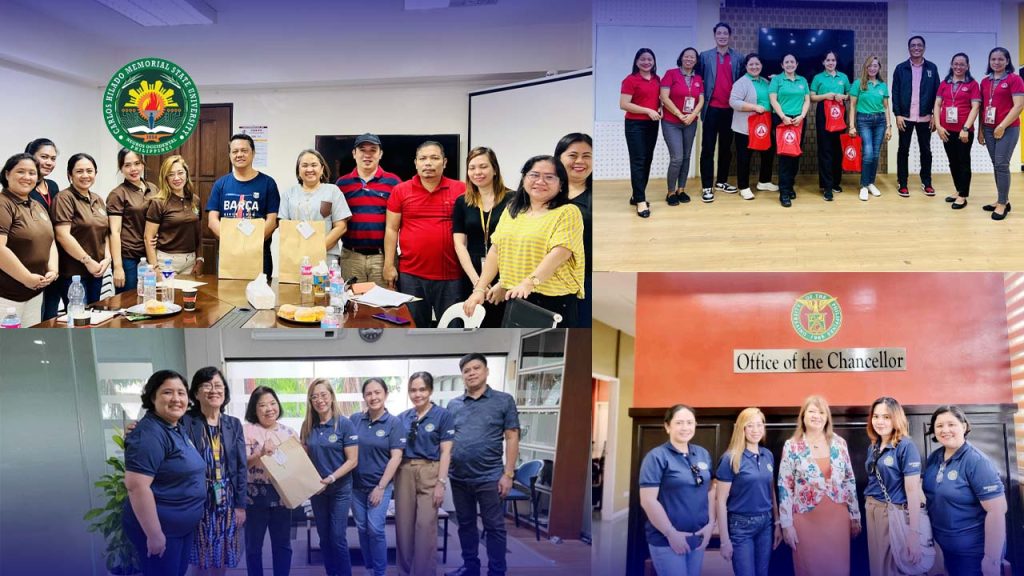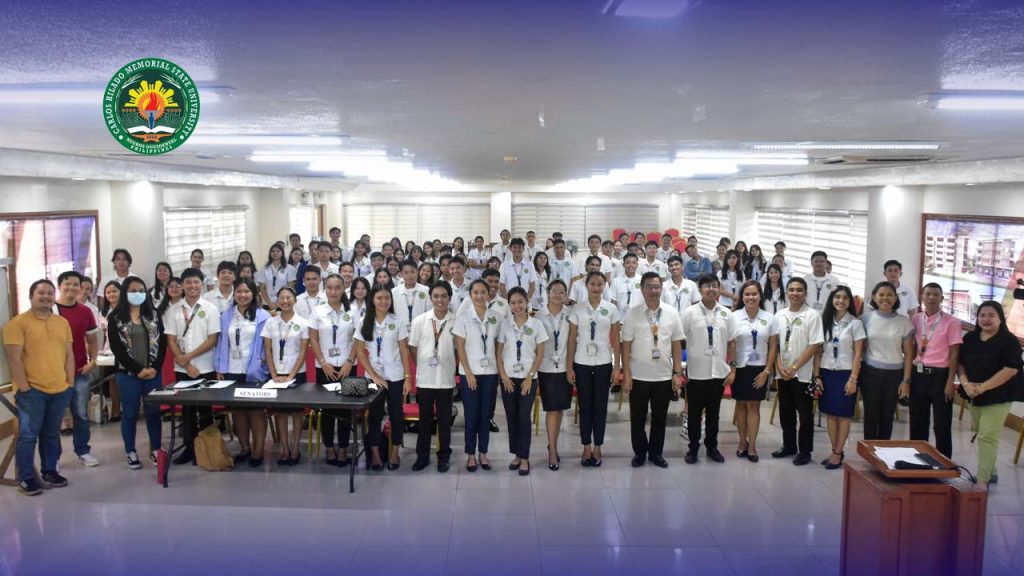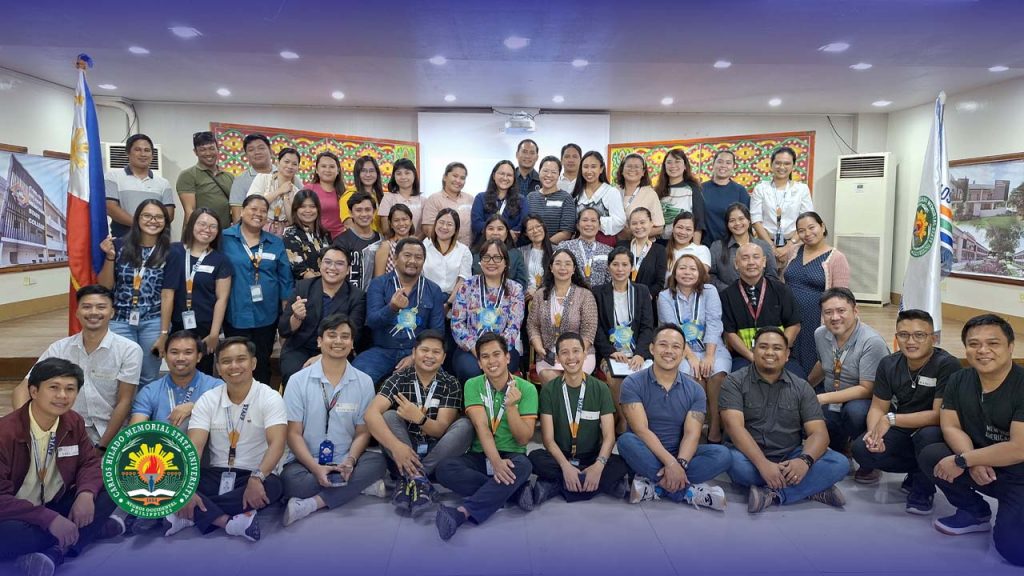While our vehicles have made our lives more convenient and travelling a lot easier, being on the road has its risks and requires focus, preparedness and commitment to safety.
The World Health Organization recorded that approximately 1.3 million people die each year as a result of road traffic crashes and between 20 and 50 million more people suffer injuries and disabilities. Ironically, 93% of the world’s fatalities on the roads happen in low- and middle-income countries, even though these countries have around 60% of the world’s vehicles. According to the Philippine Statistics Authority (PSA), road accidents were the thirteenth top cause of death of Filipinos in 2022.
With the alarming number of cases, the Department of Transportation calls on each citizen to be responsible road-users. Many accidents can actually be prevented if the driver is prepared. One of the most basic practices that the DOTr strongly encourages is the observance of BLOWBAGETS before getting on the road.
BLOWBAGETS is a simple checklist that all drivers can follow to ensure that they are in good condition to drive and that their vehicles are safe for the road. It stands for battery, lights, oil, water, brake, air, gas, engine, tire, and self. Checking these areas or items before hitting the road can effectively decrease the chances of accidents.

Battery
- Limit short rides
- Keep batteries tightly fastened
- Turn off all the lights before getting off
- Control the corrosion
- Do not use gadgets or accessories when engine is off
Light
- Always clean lens
- Make sure to switch the lights ON before sunset
- Switch OFF cabin lights when engine is off
- Keep windshield and mirrors clean
- If possible, switch to low beam lights if you are within 200 meters of the car in front of you
- Avoid too much tint
- Avoid using excessive lights
Oil
- Check the engine oil level regularly and add if necessary
- Change oil at regular interval
- Check for oil leaks
- Avoid prolonged RPM to avoid oil leaks
- Check the ball joint grease, fluids and steering oil or gear o
Water (Coolant)
- Check the water level regularly
- Avoid overfilling the reservoir to maintain correct back pressure
- Replace radiator cap, if required to avoid overheating
- Do not condemn thermostat
- Always check upper and lower hose
Brakes
- Check for oil leaks on the brake master cylinder
- Check for oil leaks on the caliper or piston
- Check for allowable thickness of rotors and brake pads
- Regularly wash the rotors and pads to remove residuals or dusts
- After repair – drive the vehicle and apply intermittent brake within a block
- Always check for leaks on pipes
- Check fluid reservoir (color and odor)
Accessories
- Check for body scratches / damages, doors and windows, wiper, side and rearview mirrors, cluster instrument, etc.
- Check the horn, spare tire, early warning device, AC components, horn and seatbelt, parking brake, etc.
Gas/Fuel
- Avoid short trips
- Avoid heavy traffic
- Do not carry too much load
- Close your windows if aircon is ON
- Accelerate smoothly
- Shift smoothly
- Follow the speed limit
- Check tire pressure
- Check for leaks
- Avoid using different brands of fuel
- As much as possible, do not overfill the fuel tank
- Replace fuel tank cap, if required
Electrical
- Avoid installation of electrical accessories
- Accessories must be installed or repaired by a qualified auto electrician
- Avoid using substandard electrical wires, fuse, and fuse holders
- Never pour water on dashboard when cleaning
- Never do a spaghetti wire
Tires
- Always check the tire pressure before leaving or every scheduled stop
- In the absence of a chart, usually situated near the driver seat, the ideal maximum tire pressure when cold is minus 4psi
- The common tire problems are due to toe-in or toe-out. This may be observed after a long trip
- Rotate the tires at 45 degrees whenever the vehicle has been parked. This will prevent cracks on sidewalls
- Worn out kingpins and control arms greatly affect the wear and tear of tire
Self
- Be physically fit and mentally prepared before sitting on driver’s seat and touching the steering wheel
For Motorcycle Riders
Aside from BLOWBAGETS, check the following:
- Accelerator and Brake Cable
- Accelerator Throttle
- Drive chain or belt
Be aware of excessive modifications such as tailpipe, lights, and mirrors.
Sources:
https://www.who.int/news-room/fact-sheets/detail/road-traffic-injuries
https://www.gmanetwork.com/news/topstories/nation/866890/dotr-raises-concern-over-increase-in-deaths-due-to-road-accidents/story/
LTO Filipino Driver’s Manual Volume 1, 2nd Edition




